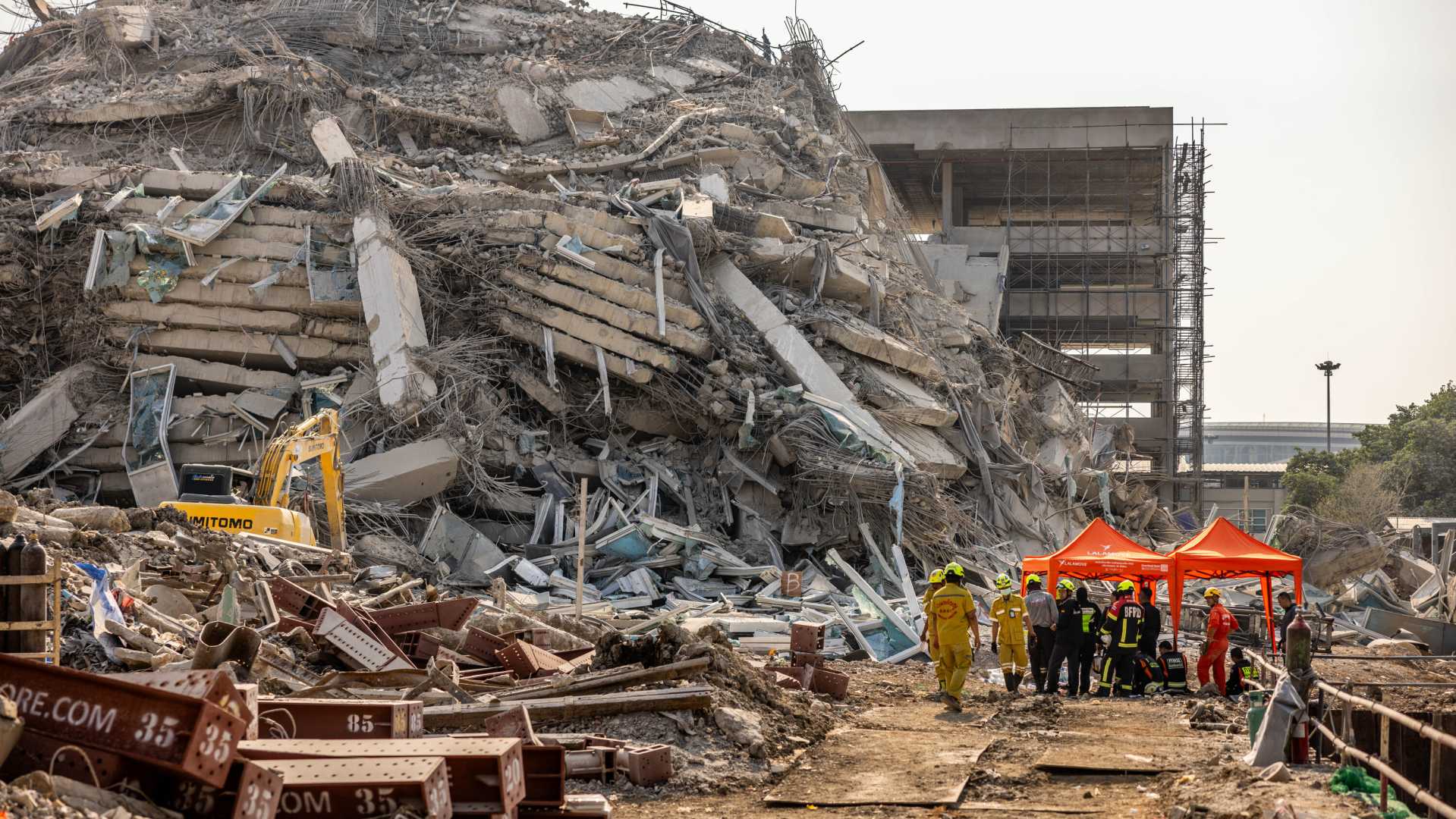News
Bangkok Skyscraper Collapse: Arrests Made Following Deadly Earthquake

BANGKOK, Thailand — A Chinese executive linked to the construction of a collapsed skyscraper in Bangkok was arrested following a devastating earthquake that struck the region last month. The 30-storey tower crumbled within seconds during a 7.7-magnitude quake that originated in neighboring Myanmar on March 28, resulting in 47 confirmed deaths at the construction site and leaving another 47 individuals missing.
Justice Minister Tawee Sodsong announced at a news conference on Saturday that a Thai court issued arrest warrants for four individuals connected to China Railway No.10, the company involved in building the State Audit Office tower. The arrests are based on accusations of violating the Foreign Business Act, which stipulates that foreign ownership in Thai companies cannot exceed 49 percent.
One of those arrested, identified as Zhang, a company representative from China, holds a 49 percent stake in the venture, while three Thai nationals collectively control 51 percent. Tawee noted that authorities have evidence suggesting the Thai nationals may be holding shares for other foreign interests, in violation of the law.
In addition to the arrests, several ongoing investigations are exploring potential bid rigging and the alleged use of fake engineer signatures in construction supervisory contracts. Earlier assessments revealed that some of the steel rebars used in the construction were substandard, raising further concerns about safety protocols.
On March 31, police detained four Chinese nationals who attempted to enter the collapsed site without permission, reportedly seeking to recover documents from the location. The fallen tower was notably the only major structure in Bangkok to succumb to the earthquake, which resulted in a tragic toll, claiming over 3,700 lives across Thailand and Myanmar.
As recovery efforts continue, officials emphasize the importance of thorough investigations to uphold safety regulations in construction, ensuring that similar incidents do not occur in the future.












